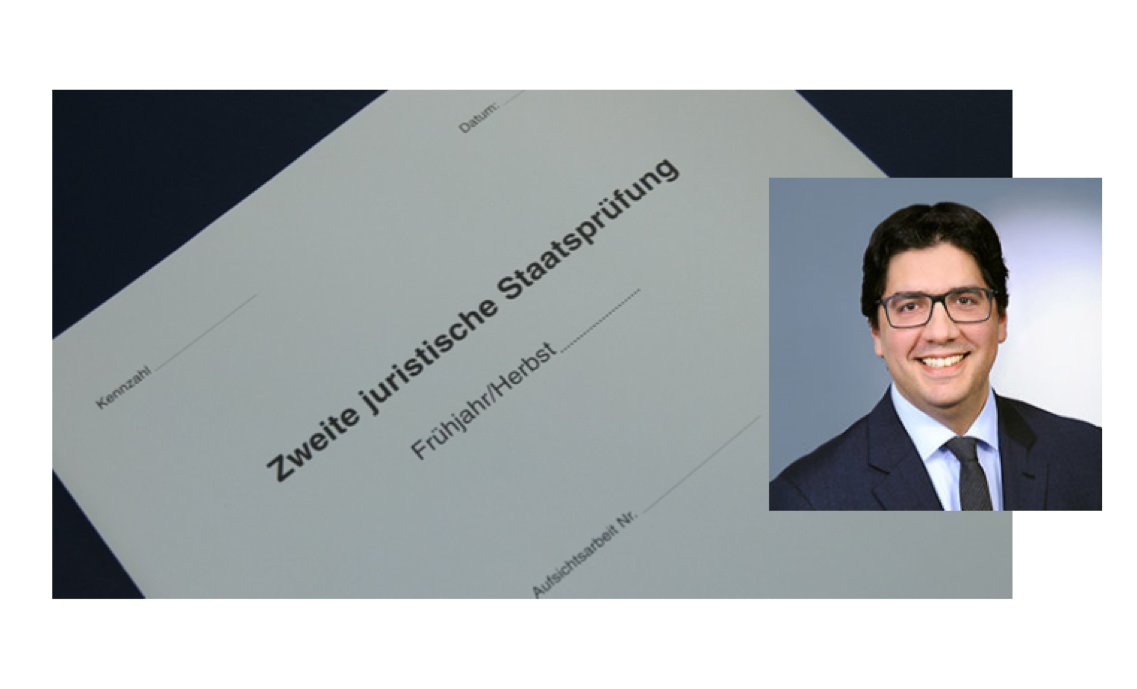
GLJ Editor Emanuel V. Towfigh Co-Authors Justice Ministry Report on Discrimination State Exams
GLJ Editor Emanuel Towfigh Co-Authors Justice Ministry Report on Discrimination in the State Exams that are Central to German Legal Training
Joined by co-authors Andreas Glöckner and Christian Traxler, GLJ editor Emanuel Towfigh recently published a report commissioned by the Federal Justice Ministry that examines the effects of gender and migrant-background on the results of the German state exams. The two state exams – the first taken at the conclusion of university training in law and the second taken at the close of a two-year program of varied, practical legal training – form the most fundamental credentials for a successful legal career in Germany. Stefan Korioth (Munich Law Faculty) described these arduous rites of passage in unforgiving terms: “Most students think the State Examination is very demanding. They are right. It is a great challenge to have complete command of the entire law in force at the time of the examination. . . Thirty percent of the candidates fail to pass the First Examination successfully.” (Korioth, “Legal Education in German Today,” 24 Wisconsin International Law Journal 85 (2006)).
The report’s authors note that “distinctions in exam results play a greater role in jurists’ career opportunities and career success than they do in nearly any other academic discipline.” The state exams’ nearly-existential gate-keeping function makes the results of the report alarming: women receive lower scores than men; examinees with migrant backgrounds receive lower scores; the negative outcomes for these groups are particularly pronounced among the exams’ highest scores; the composition of the examining commission seems to contribute to these negative outcomes. The full report was accompanied by an academic article, an executive summary, and a press-release (all in German). The report received extensive coverage in the German media.
The German Law Journal also has been concerned with issues of discrimination. In 2016 Barbara Havelková published an article on Eastern European resistance to European anti-discrimination mandates. In 2013 Joyce Marie Mushaben used the compelling example of women and the headscarf as the framework for an article examining the tension between state neutrality and anti-discrimination obligations. In 2009 Franz Christian Ebert and Tobias Pinkel published an article considering restrictions on the freedom of contract in light of non-discrimination provisions. In 2006 Susanne Hoentzsch published an article on Europe’s Anti-Discrimination Directives and discrimination in individual-related employment and Marlene Schmidt published case-note on age-discrimination and the ECJ’s Mangold judgement. These – and other articles – followed the exciting dialogue carried on in these pages in 2002-2003 between Nicola Vennemann, Karl-Heinz Ladeur, and Viktor Winkler concerning Germany’s reluctance to implement anti-discrimination legislation as required by a number of European Directives.







